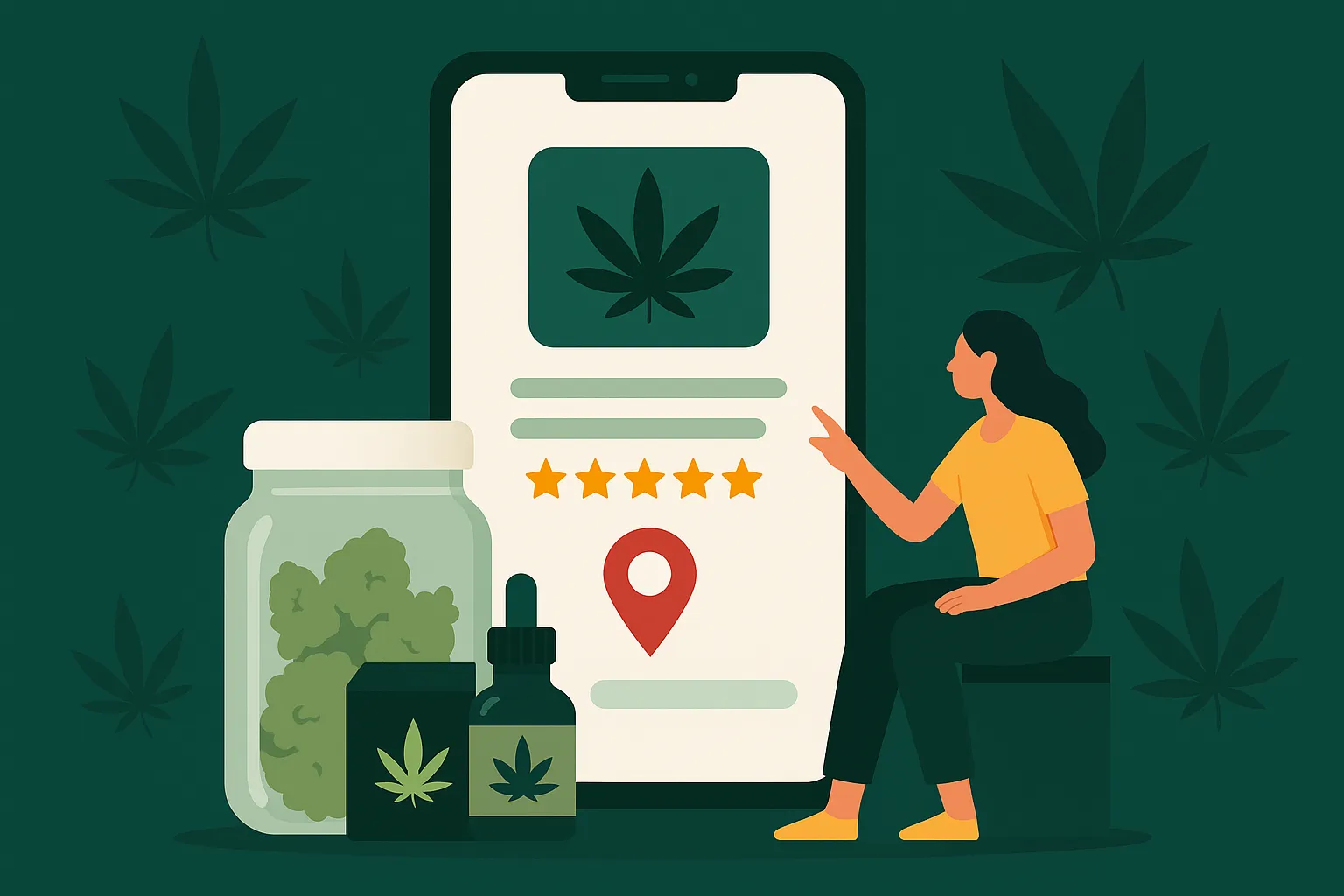Cannabis isn’t just booming—it’s blazing. With legalization spreading across states, provinces, and even countries, the cannabis economy has become a serious tech opportunity. And leading the charge in connecting dispensaries with consumers? Weedmaps. The platform has become the go-to marketplace for cannabis discovery, delivery, and education. But Weedmaps isn’t the only game in town—and that’s exactly where founders are stepping in with clone scripts tailored for their local markets, laws, and user needs.
If you’re looking to enter the cannabis delivery or dispensary tech space, a Weedmaps Clone scripts can get you up and running faster than trying to build from scratch. This blog dives into the top Weedmaps Clone scripts in 2025, their key features, use cases, and what kind of budget you should prepare to make your platform a reality.
Why Launch a Weedmaps Clone?
Weedmaps may be dominant, but it’s not local everywhere. Legal regulations vary by state, province, or country—and that opens up space for region-specific clones. A good Weedmaps Clone app allows entrepreneurs to build a community marketplace for licensed dispensaries, offer location-based delivery services, and build loyalty with customers through convenience and trust.
What Makes the Weedmaps Model So Effective?
- Searchable Product Menus: Users can browse flower, concentrates, edibles, and accessories by category or strain.
- Verified Dispensary Listings: Stores are geolocated and reviewed, creating user trust.
- On-Demand Delivery Integration: Customers can place orders for delivery or pickup from nearby stores.
- Strain Education: Each product or strain comes with effects, cannabinoid profiles, and user feedback.
Replicating this experience in your own clone means building not just a store locator—but an entire digital dispensary ecosystem.
Read More : Weedmaps App Features That Drive User Growth
Essential Features for a Weedmaps Clone Scripts in 2025

The cannabis customer base is digitally savvy, brand-conscious, and selective. Your clone script should deliver a sleek, reliable, and compliant platform for browsing, ordering, and engaging.
1. Location-Based Store and Product Discovery
Users should be able to see all nearby dispensaries based on current GPS location or by zip code. Filter options must include open hours, delivery availability, rating, and category.
2. Verified Product Listings
Each dispensary should have its own admin panel to upload detailed product menus with:
- THC/CBD levels
- Consumption method (smoke, edible, topical)
- Images and lab test reports
- Pricing by weight or quantity
- Inventory sync
3. Advanced Strain Filters
Allow users to filter by:
- Strain type (Indica, Sativa, Hybrid)
- Effects (Relaxed, Energetic, Euphoric)
- Flavor (Citrus, Diesel, Berry)
- THC/CBD concentration
4. Real-Time Order Tracking
If delivery is offered, customers should be able to place orders and track driver status in real time—just like food delivery apps.
5. Ratings and Reviews
Users should leave verified reviews on dispensaries and individual products. Verified purchases give higher review credibility.
6. ID Verification and Age Gate
Built-in user onboarding should include ID uploads, selfie verification, and age-check gate for legal compliance.
7. Loyalty and Rewards System
Add gamified loyalty programs, coupons, referral codes, and cashback wallets to increase retention.
8. In-App Support and FAQ
Built-in chatbot, live support, or ticketing system so customers can resolve order issues without leaving the app.
Read More : How to Start an Online Pharmacy & Medicine Delivery Platform Business
Tech Infrastructure You’ll Need Under the Hood
A solid tech stack powers performance and security, especially in regulated industries like cannabis. Here’s what your Weedmaps Clone script should run on:
- Frontend: React Native or Flutter for fluid iOS and Android experience
- Backend: Node.js or Laravel for scalable APIs and admin control
- Database: PostgreSQL or MongoDB for complex dispensary and product data
- Maps & Tracking: Google Maps API, Mapbox, or OpenRoute for GPS tracking
- Age & ID Verification Tools: Integration with services like Stripe Identity or Onfido
What to Compare When Choosing a Clone Script
Not all scripts are built the same. Before you invest, consider the following:
- Compliance Features: Are there built-in tools to support state-wise tax, ID verification, and audit logs?
- Vendor Controls: Can dispensary owners manage their own storefronts, inventory, and discounts?
- Delivery Routing: Does it support delivery radius, driver assignments, and live location tracking?
- Scalability: Can it handle thousands of users, hundreds of dispensaries, and heavy traffic on sale days?
- Revenue Channels: Does the script support commissions, listing fees, paid promotions, and upsells?
Cost Factors & Pricing Breakdown
Weedmaps-Style Cannabis Marketplace Platform — Market Price
| Development Level | Inclusions | Estimated Market Price (USD) |
|---|---|---|
| 1. Basic Cannabis Directory MVP | Store listings, product categories, menu browsing, user reviews, basic location search, simple admin panel | $40,000 |
| 2. Full-Feature Cannabis Marketplace Platform | Store onboarding, product catalogs, order workflows, delivery/pickup modules, age verification, wallet & payouts, analytics dashboards | $90,000 |
| 3. Enterprise Cannabis Commerce Ecosystem | Multi-region compliance automation, ID verification systems, subscription tiers, advanced search ranking, loyalty modules, multi-store management, mobile apps | $170,000+ |
The above pricing represents the typical global market cost of building a Weedmaps-style cannabis marketplace — where teams invest months developing compliance workflows, product catalogs, delivery workflows, and multi-store operational logic before going live.
Miracuves Pricing for a Weedmaps-Style Platform
Miracuves Price: Starts at $2,899
Miracuves delivers a complete Weedmaps-style cannabis marketplace solution featuring store listings, cannabis product menus, reviews, delivery & pickup modules, age/KYC flows, and an advanced admin dashboard — all for a fraction of global development cost. The platform is engineered on a stable PHP architecture optimized for scalability, high performance, and state-level compliance flexibility.
Note
Your solution includes full non-encrypted source code, backend/API configuration, deployment support, admin panel setup, and publishing assistance for Android & iOS — ensuring a fully operational, ready-to-launch cannabis marketplace.
Launch your Weedmaps-style platform in days while others spend $170,000+ and wait months — choose Miracuves and go live rapidly.
Delivery Timeline for a Weedmaps-Like Platform with Miracuves
Estimated deployment timeline: 3–9 days, depending on:
- Product catalog size & menu structures
- Compliance (KYC / age verification) complexity
- Delivery, pickup, or hybrid ordering workflows
- Payment gateway & payout automation
- Branding, UI, and theme customization
Tech Stack
The solution is engineered using powerful, reliable frameworks — PHP, MySQL & Flutter, optimized for stability, compliance-driven operations, and high-traffic marketplace usage.
Real-World Use Cases for Weedmaps Clones
The best apps we’ve seen don’t just copy—they localize and specialize. Here are some standout directions founders are taking:
- Hyperlocal Dispensary Aggregators: City-specific platforms that feature only licensed dispensaries and local delivery services.
- Medical Cannabis Platforms: For certified users, these clones integrate doctor recommendations, prescriptions, and specialized product lines.
- Cannabis Tourism Apps: Combining local tours, 420-friendly lodging, and delivery services in one app for travelers.
- Wholesale Marketplaces: B2B platforms connecting growers, manufacturers, and dispensary operators with dynamic pricing and supply tracking.
Mistakes to Avoid When Launching
- Skipping Legal Compliance Tools: Failing to integrate age gates or delivery regulations can shut you down fast.
- Forgetting Real-Time Inventory: Out-of-stock items kill trust. Syncing inventory is critical.
- Neglecting User Education: Not everyone understands THC vs CBD. Including learning sections and product guides improves engagement.
- No Vendor Independence: Dispensary owners should control their menus, pricing, and branding—not rely on platform admins to update.
Conclusion: Own the Niche, Don’t Chase the Giant
Weedmaps didn’t succeed just because it launched first—it succeeded by creating an end-to-end experience. Now, the opportunity is wide open for niche players to create apps that go deeper into local markets, regulatory needs, or verticals like wellness and tourism. Whether you want to build a cannabis delivery powerhouse or a digital discovery tool for local dispensaries, the right Weedmaps Clone script in 2025 can get you there faster and smarter. At Miracuves, we help innovators launch high-performance app clones that are fast, scalable, and monetization-ready. Ready to turn your idea into reality? Let’s build together.
Still have questions about Weedmaps Clone scripts? Let’s clear them up.
Is it legal to launch a Weedmaps Clone?
Yes, as long as your platform complies with local cannabis regulations and doesn’t copy protected brand assets, you can build and operate your own cannabis tech product.
Can users place orders through the app?
If the clone script includes delivery integration, users can place orders for pickup or delivery, subject to local laws.
Can I monetize the platform beyond commissions?
Yes. You can earn through featured listings, ad banners, loyalty programs, subscription plans for vendors, and delivery charges.
How long does it take to launch a white-label clone?
With minor tweaks and setup, 3–9 days is common. More complex builds with delivery and verification can take 4–8 weeks.
Can I run the platform in multiple states or countries?
Absolutely. As long as you integrate compliance tools and configure tax/legal settings by region, it can scale across multiple markets.
What if I want to focus only on CBD or non-psychoactive products?
You can filter vendors, products, and menus to show only certain categories—perfect for launching a health and wellness-focused cannabis marketplace.
Related Articles
- A Complete Cost Analysis for Developing an E-Pharmacy Platform
- How to Market a Pharmacy Marketplace Successfully After Launch
- Best Netmeds Clone Scripts in 2025: Features & Pricing Compared
- Best Practo Clone Scripts in 2025: Features & Pricing Compared
- Best 1mg Clone Scripts in 2025: Features & Pricing Compared








